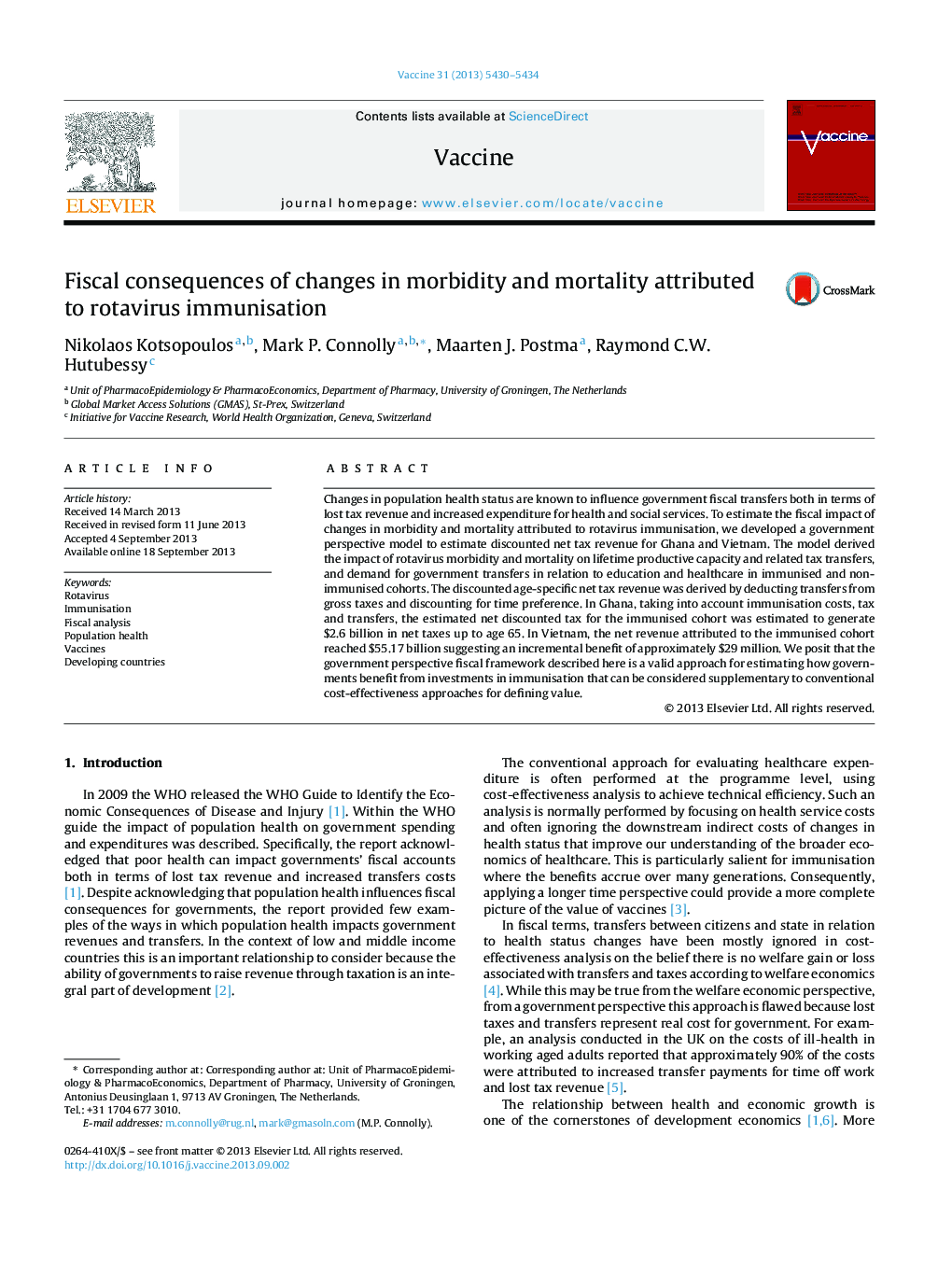| Article ID | Journal | Published Year | Pages | File Type |
|---|---|---|---|---|
| 10967456 | Vaccine | 2013 | 5 Pages |
Abstract
Changes in population health status are known to influence government fiscal transfers both in terms of lost tax revenue and increased expenditure for health and social services. To estimate the fiscal impact of changes in morbidity and mortality attributed to rotavirus immunisation, we developed a government perspective model to estimate discounted net tax revenue for Ghana and Vietnam. The model derived the impact of rotavirus morbidity and mortality on lifetime productive capacity and related tax transfers, and demand for government transfers in relation to education and healthcare in immunised and non-immunised cohorts. The discounted age-specific net tax revenue was derived by deducting transfers from gross taxes and discounting for time preference. In Ghana, taking into account immunisation costs, tax and transfers, the estimated net discounted tax for the immunised cohort was estimated to generate $2.6 billion in net taxes up to age 65. In Vietnam, the net revenue attributed to the immunised cohort reached $55.17 billion suggesting an incremental benefit of approximately $29 million. We posit that the government perspective fiscal framework described here is a valid approach for estimating how governments benefit from investments in immunisation that can be considered supplementary to conventional cost-effectiveness approaches for defining value.
Related Topics
Life Sciences
Immunology and Microbiology
Immunology
Authors
Nikolaos Kotsopoulos, Mark P. Connolly, Maarten J. Postma, Raymond C.W. Hutubessy,
